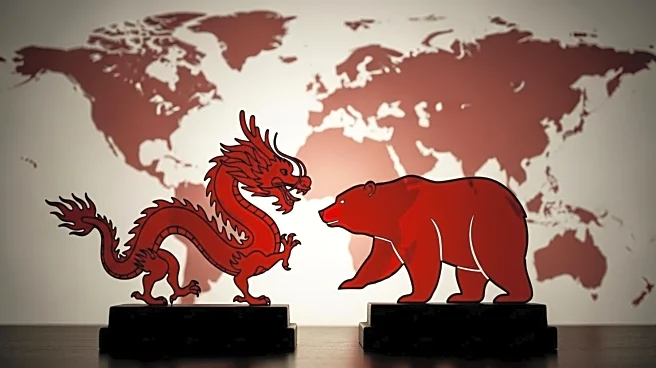What's Happening?
A resolution proposed by China and Russia to delay the reimposition of United Nations nuclear sanctions on Iran was unsuccessful. The resolution aimed to postpone the sanctions for six months but was voted down at the United Nations Security Council. China's Deputy Permanent Representative to the United Nations, Geng Shuang, addressed delegates following the vote during the 80th U.N. General Assembly in New York. The sanctions, known as 'snapback' sanctions, are part of measures to curb Iran's nuclear activities.
Why It's Important?
The failure of the resolution signifies a continued international effort to enforce nuclear restrictions on Iran, reflecting ongoing geopolitical tensions. The decision impacts Iran's ability to engage in nuclear activities without facing international penalties, affecting its economic and political landscape. For China and Russia, the unsuccessful attempt highlights their limited influence in altering UN decisions, potentially affecting their diplomatic relations with Iran and other nations involved in the nuclear agreement.
What's Next?
With the sanctions set to be reimposed, Iran may face increased economic pressure, potentially leading to further diplomatic negotiations or confrontations. The international community, particularly countries involved in the nuclear agreement, will likely monitor Iran's compliance closely. China and Russia may seek alternative diplomatic channels to support Iran or address their strategic interests in the region.
Beyond the Headlines
The situation underscores the complexities of international diplomacy, where geopolitical interests often clash with global security concerns. The dynamics between major powers like China, Russia, and the United States in the UN could influence future resolutions and international policies regarding nuclear proliferation.












